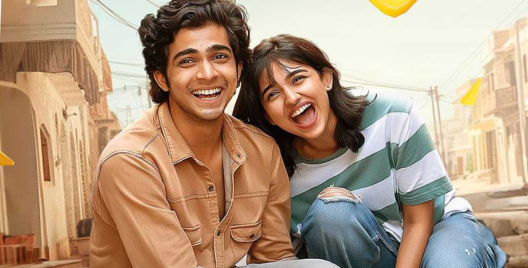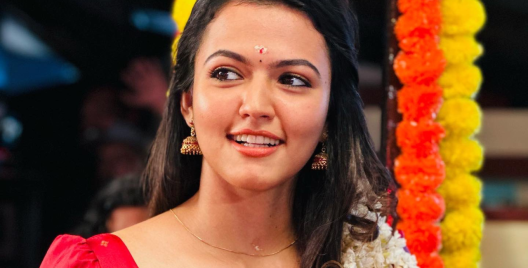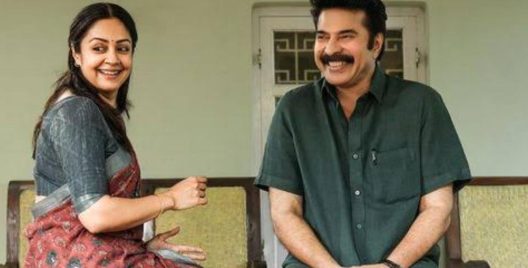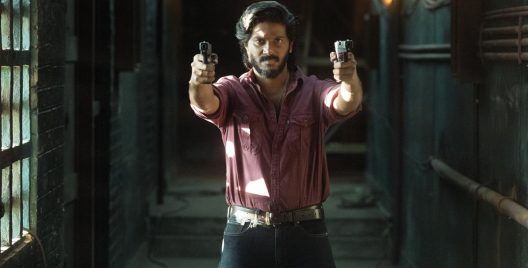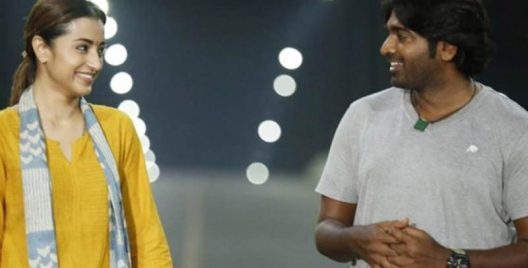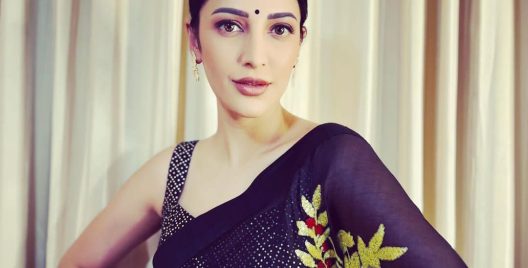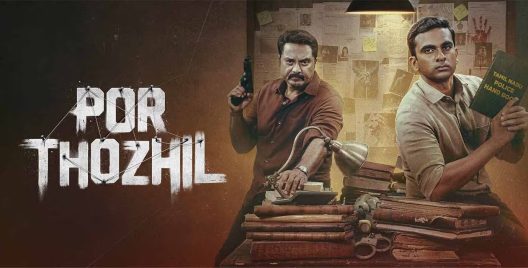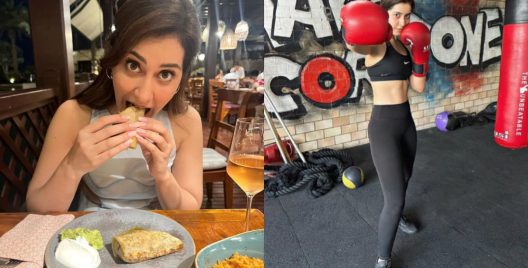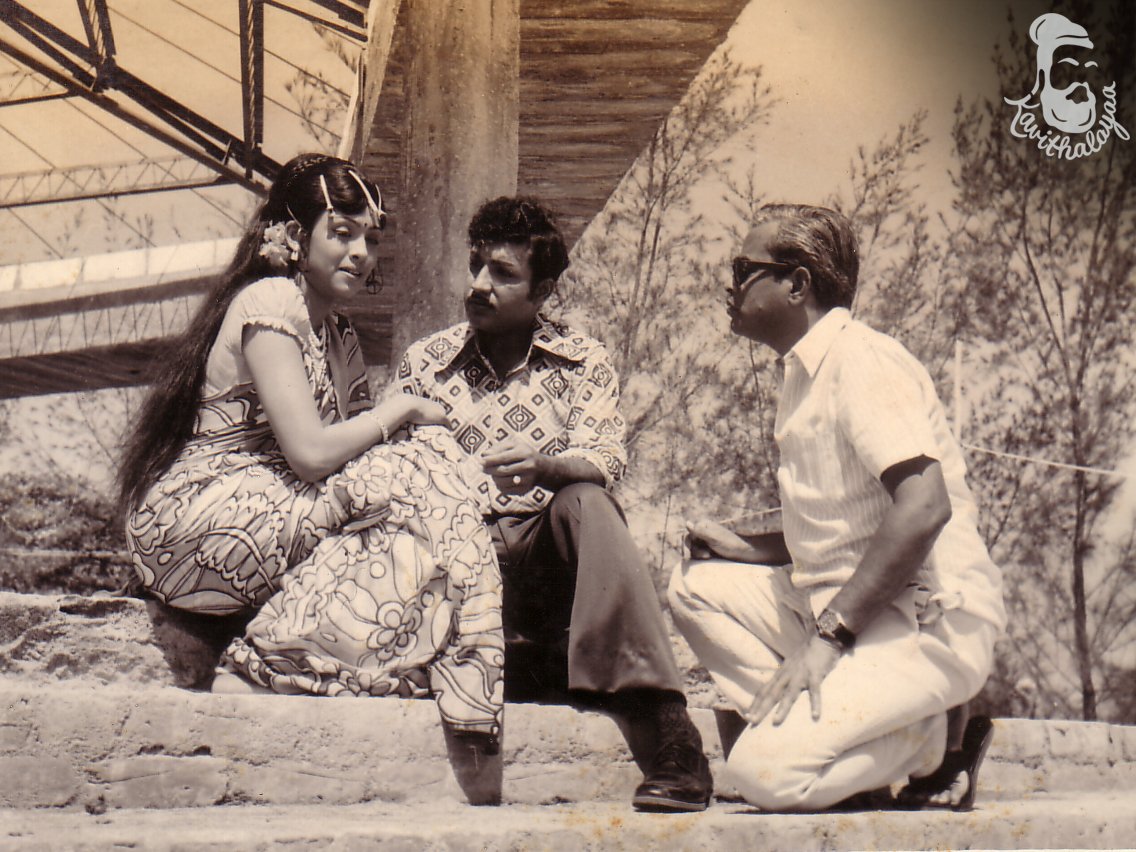
Aval Oru Thodar Kathai (transl. She is a never-ending story) follows the life of Kavitha (Sujatha), who became the sole breadwinner of her family owing to her irresponsible father and brother. Kavitha’s sole earning takes care of her mother, widowed sister Bharati (Sripriya), an unmarried younger sister, a blind younger brother, a drunkard elder brother Murthy (Jai Ganesh), his wife and children.
Though Kavitha is portrayed as a strong, independent working woman who is often associated with ‘fire’ because she never lets her guard down, in hindsight, she is wired in a way to only make sacrifices and take care of her family—no matter what.
Independence But Within Traditional Boundaries
The film starts with shots of Kavitha getting ready for work. She wears a chic saree and bright lipstick. Throughout the film, considerable screen time is allocated for Kavitha’s grooming in front of a mirror. She buys herself a lipstick instead of a health tonic for her family which makes her mother question her integrity. Towards the end of the film, as Kavitha’s brother Murthy starts to prove his capability of providing for the family, she is immediately relieved to resign from work. She says, “Makeup, cosmetics and luxury items are the burdens of a working woman. I don’t need them anymore,” and asks her mother to throw away her cosmetics. Kavitha is also heavily criticised by her peers, family and even by her boyfriend that her words spit fire like a dragon. Her thankless family deems her as ‘arrogant’ for following discipline.
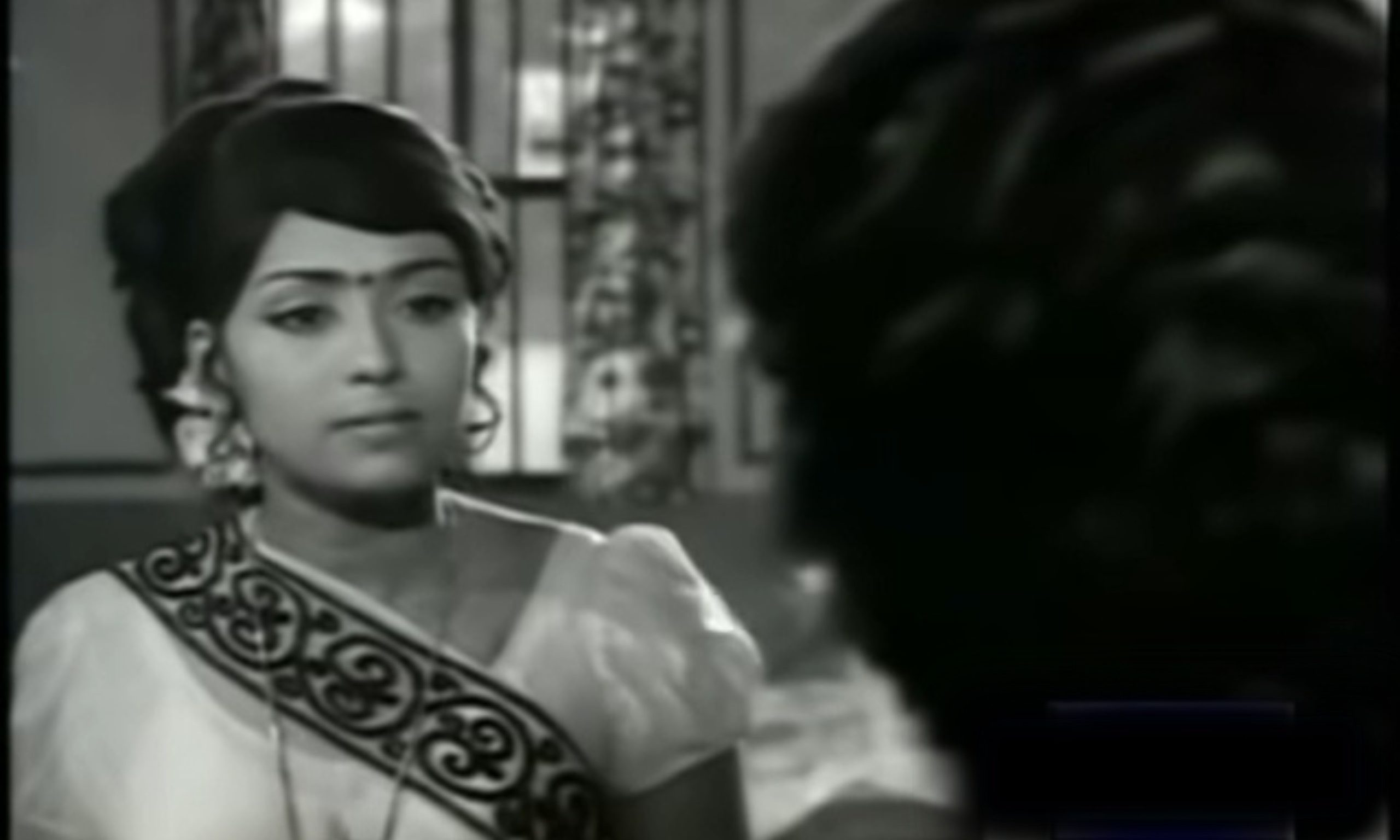
In the years that followed suit, many Tamil film representations of a ‘greedy’ ‘arrogant’ working women wore extravagant clothing and jewellery, they attended partiers in their skin fit or sleeveless blouses, loved make-up, spoke English and embraced ‘modernity’—everything that Kavitha justifying adopted only due to her family’s economic necessity and was happy to relinquish at the sight of a male head of the family.
Liberation But Clad In A Saree
Chandra (‘Fatafat’ Jayalakshmi), Kavitha’s friend, is another strong, independent working woman in the film. But unlike Kavitha, Chandra is portrayed as a liberated, free spirit who doesn’t let her desires intertwine with the norms of society. The polar contrast between Kavitha & Chandra is shown in a famous sequence where Chandra is baring herself in a bathtub and talking to a saree-clad Kavitha.

When Chandra gets pregnant and her irresponsible boyfriend is not keen on taking things forward, she calmly gets an abortion without any guilt—rightfully so. Her modernity which alienates her from the crowd is verbally brought on screen by her mixing Hindi and Tamil in her daily repartee ‘fata-fat’. The word became so popular that the actor Jayalaksmi who played the role adopted ‘Fatafat’ (transl. quickly) as her prefix.
But in the end, all her liberation comes to a point where she is tamed, dressed in a saree and falls at the feet of her newly married husband (Kamal Hassan). The ideal transformation that is expected out of free-spirit women in Tamil cinema. Mannan (1992), Singaravelam (1992), Naattaamai (1994), Suryavamsam (1997) and Singam (2010) are a few among the innumerable Tamil films where urban, modern women were duly converted (read: tamed) into saree-wearing wives immediately after the wedding.
Working Women Are Just Placeholders
“Women have minds and souls as well as just hearts, and they’ve got ambition and talent as well as just beauty. And I’m sick of people saying that love is all a woman is fit for. I’m so sick of it! But—I’m so lonely!”says Jo March in Louisa May Alcott’s book Little Women. Kavitha in Aval Oru Thodar Kathai faces similar exhaustion. A rhetoric melancholic theme that travels throughout the film on how Kavitha has no desire to be head of the family if there was a proper-male figure who could do the job. She is so quick to resign from her work and return to her old life of just being at home and taking care of the family. ‘‘I have been working like a machine and I need rest, I need a family and a life. I need a husband who will provide for me,” she says. Her exhaustion is visible and her feelings are valid.

The film’s narrative that women can’t be successful in both professional and personal life created an opinion that all working women, though they are decision makers, they are sad at the end of the day. Working women are just placeholders till the family is economically stable or the men of the house come to their senses, places a hyper-masculine narrative to the story.
Through his women-centric stories K. Balachander, followed the steps of Bharathi’s ‘Pudhumai Pen’ and brought to screen numerous real women characters who were educated and fought their way against the system. But as Aval Oru Thodar Kathai enters its fifth decade of being a cult classic it is important to talk about the long-lasting reflections it has left in Tamil cinema and society.




